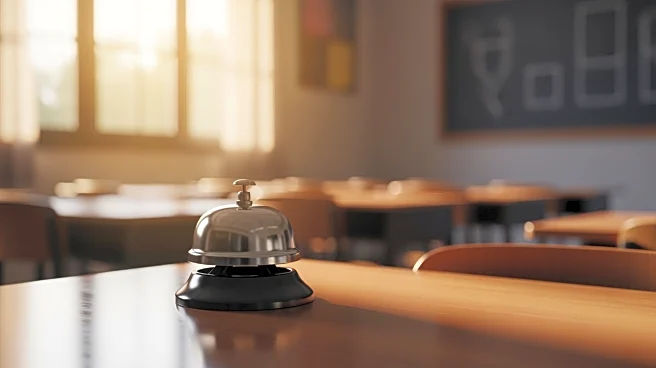Rapid Read • 8 min read
Enzo Suma, a naturalist guide from Salento, Italy, has established an online museum called Archeoplastica, showcasing over 500 plastic relics found on Italian beaches. The museum aims to highlight the persistence of plastic waste in the environment, with items dating back to the 1950s. Suma's initiative began after discovering a vintage sunscreen bottle from the 1960s, prompting him to collect and display various plastic items washed ashore. The museum's collection includes items like a 1958 bottle cap and a 1960s honey bottle, illustrating the longevity of plastic waste. The museum seeks to raise awareness about the environmental impact of plastic and encourage reduced usage.
AD
The establishment of Archeoplastica underscores the growing concern over plastic pollution and its impact on the environment. With approximately 11 million tonnes of plastic waste entering oceans annually, the museum serves as a stark reminder of the urgent need for action. The initiative highlights the historical timeline of plastic production and its enduring presence in nature, emphasizing the need for global efforts to reduce plastic usage and production. This museum not only educates the public but also advocates for policy changes to address the plastic crisis, which poses a significant threat to both human and planetary health.
Archeoplastica plans to continue its efforts in raising awareness by exhibiting its collection in traditional museums. The initiative aims to inspire individuals and policymakers to take meaningful steps towards reducing plastic production and consumption. As the museum gains attention, it may influence environmental policies and encourage international cooperation to tackle plastic pollution. Suma and his team will persist in their collection efforts, particularly during seasons when beach waste is most prevalent, to expand the museum's inventory and further highlight the ongoing plastic crisis.
The museum's collection not only serves as an educational tool but also raises ethical questions about consumerism and waste management. It challenges society to reconsider the use of single-use plastics and the long-term consequences of plastic production. The initiative may also inspire similar projects globally, fostering a cultural shift towards sustainability and environmental responsibility. Archeoplastica's efforts could lead to increased public pressure on industries and governments to implement stricter regulations on plastic production and waste management.
AD
More Stories You Might Enjoy










